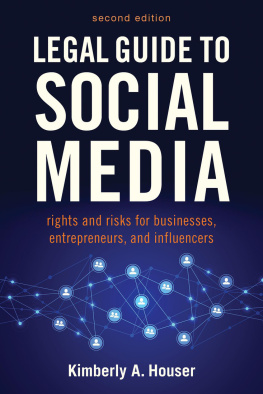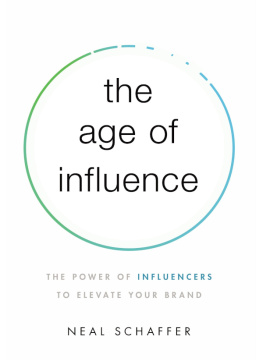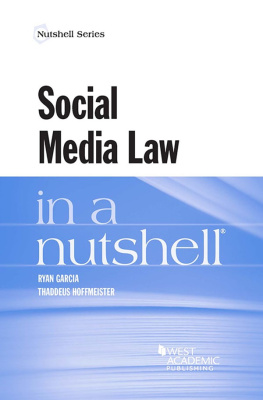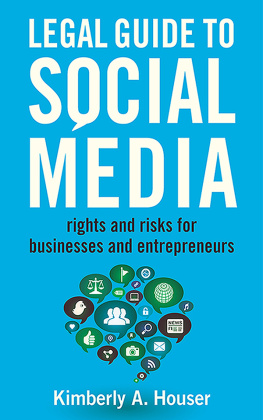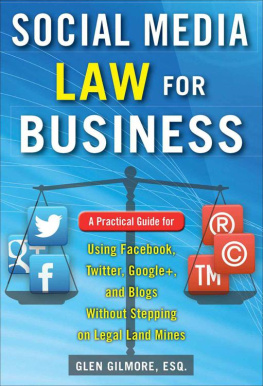


Copyright 2022 Kimberly A. Houser
All rights reserved. Copyright under Berne Copyright Convention, Universal Copyright Convention, and Pan American Copyright Convention. No part of this book may be reproduced, stored in a retrieval system, or transmitted in any form, or by any means, electronic, mechanical, photocopying, recording or otherwise, without the express written consent of the publisher, except in the case of brief excerpts in critical reviews or articles. All inquiries should be addressed to Allworth Press, 307 West 36th Street, 11th Floor, New York, NY 10018.
Allworth Press books may be purchased in bulk at special discounts for sales promotion, corporate gifts, fund-raising, or educational purposes. Special editions can also be created to specifications. For details, contact the Special Sales Department, Allworth Press, 307 West 36th Street, 11th Floor, New York, NY 10018 or .
26 25 24 23 22 5 4 3 2 1
Published by Allworth Press, an imprint of Skyhorse Publishing, Inc. 307 West 36th Street, 11th Floor, New York, NY 10018. Allworth Press is a registered trademark of Skyhorse Publishing, Inc., a Delaware corporation.
www.allworth.com
Cover design by Mary Belibasakis
Library of Congress Cataloging-in-Publication Data is available on file.
Print ISBN: 978-1-62153-793-9
eBook ISBN: 978-1-62153-794-6
Printed in the United States of America
For Frankie
CONTENTS
ACKNOWLEDGMENTS
I would like to thank everyone at Allworth Press for being so organized and walking me through the entire process, especially Tad Crawford and Caroline Russomanno. I would also like to thank my friends, my current and former students, and all of my clients for trusting me with their questions and encouraging me in my writing.
DISCLAIMER
N othing in this book is intended to be or should be construed as legal advice. Every situation is different and fact-specific. Please consult with an attorney licensed in your state with any questions specific to your business or situation.
AUTHOR BIO
K imberly A. Houser is an Assistant Clinical Professor of Business Law and the Law of Emerging Technologies at the University of North Texas and a Visiting Scholar at the Ostrom Workshop at Indiana University. Her primary research explores data privacy (the United States and EU); artificial intelligence; United States, EU, and China tech policy and regulation; distributed ledger technology; and unconscious bias/gender diversity issues. Prior to teaching, Kimberly practiced law in Chicago and served as General Counsel to an Austin, Texas, tech start-up. In addition to speaking at events such as TNW in Amsterdam on the GDPR, SXSW on the IRSs data analytics activities, and the Brookings Institute on artificial intelligence in the workplace, she recently spoke at the European Parliament in Brussels on artificial intelligence and gender diversity in start-ups. She is a Certified Information Privacy Professional on European privacy and data protection law (CIPP-E). Her published works include Artificial Intelligence and the Struggle Between Good and Evil , 60 W ASHBURN L AW R EVIEW 475 (2021); It Is Time to Move Beyond the AI Race Narrative: Why Investment and International Cooperation Must Win the Day, 18 N ORTHWESTERN J OURNAL OF T ECHNOLOGY AND I NTELLECTUAL P ROPERTY L AW 129 (2021, with Anjanette Raymond); The Innovation Winter Is Coming: How the U.S.-China Trade War Endangers the World , 57 S AN D IEGO L. R EV . 549 (2020), Can AI Solve the Diversity Problem in the Tech Industry? Mitigating Noise and Bias in Employment Decision-Making , 22 S TANFORD T ECH . L. R EV . 290 (2019), Personal Data and the GDPR: Providing a Competitive Advantage for U.S. Companies , 56 A MERICAN B USINESS L AW J OURNAL 287 (2019, with W. Gregory Voss), The European Commission on the Privacy Shield: All Bark and No Bite? , I LLINOIS J. L AW , T ECH . & P OLICY T IMELY T ECH (2018, with W. Gregory Voss), GDPR: The end of Google and Facebook? , R ICHMOND J. L. & T ECH . (2018, with W. Gregory Voss), The Use of Big Data Analytics by the IRS: What Tax Practitioners Need to Know , 128 J OURNAL OF T AXATION 6 (2018, with Deborah Sanders); and The Use of Big Data by the IRS: Efficient Solution or the End of Privacy as We Know It?, 19 V AND . J. E NT . & T ECH . L. 817 (2017, with Deborah Sanders). See kimberlyahouser.com for more information.
INTRODUCTION
If you are in social media marketing and have posted content online or set up a website without consulting an attorney, help is on the way!
F acebook, Twitter, Instagram, YouTubewe all use them. We all scroll through them. But do we really know whether what we post is legal? Do we really think through each word we type or photo we post prior to hitting enter? Can you really be sued for defamation for posting something on Facebook? Jacqueline Hammond had to pay $500,000 to a woman she was in a dispute with over the ownership of a radio station for falsely claiming on Facebook that the woman had gotten drunk and killed her own child.
In the past few years, we have seen a dramatic increase in lawsuits being filed and fines assessed against people posting comments and videos online. This increase in lawsuits and fines corresponds with the explosion in the use of social media. In 2020, Facebook reported over 2.7 billion active users, up from 150 million users in 2009.
Social media marketing is the use of interactive websites to promote services and products. Unlike traditional one-way advertisements, social media sites permit consumers the ability to converse directly with the advertisers as well as endorse or denounce products and services on their
Social media marketing includes a wide variety of activities; however, it has a singular purpose: to generate business through Internet traffic. According to Mashable, social media marketing programs usually center on efforts to create content that attracts attention and encourages readers to share it with their social networks. A corporate message spreads from user to user and presumably resonates because it appears to come from a trusted, third-party source, as opposed to the brand or company itself. Hence, this form of marketing is driven by word-of-mouth, meaning it results in earned media rather than paid media. This includes setting up websites; setting up social media pages; creating content; monitoring social media; linking to other websites; blogging; posting comments; posting photos and videos; interacting with social media sites; and much more.
Social media marketing has also resulted into a subcategory known as influencer marketing. Influencers are those with a strong social media presence, usually on Instagram or YouTube, who have the ability to affect the purchasing decisions of their followers. The expansion of influencers has resulted not only from the ease with which one may use social media, but also because consumers tend to trust recommendations over direct advertising by businesses. Influencers may be referred to as social media marketers throughout this book.
The legal issues in social media use are varied and the implications enormous, both for the companies trying to control conversations about their products and services and for the influencer or consumer who generates their own content about a product or service. Social media marketing differs from traditional marketing in that the marketing efforts are no longer outbound. They include inbound messaging and viral messaging. The message can take on a life of its own, sometimes leading to a telephone game result. Companies and advertisers attempting to influence consumers online have to deal with a host of unpredictable results. This can present legal issues, because if there is one thing the law likes, it is predictability. The advantage of social media marketing is the ability to interact with consumers in a way that most large businesses traditionally could not. The disadvantage is that laws regarding traditional forms of advertising are being applied to new technologies in ways that cannot be anticipated, creating legal uncertainty in the social media marketing world.
Next page
